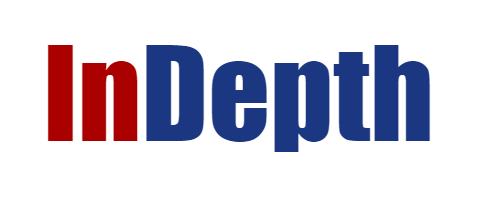NATO and the EU; It does take two to Tango!
Rear Admiral (ret) George TSONGAS Hellenic Navy,
thesis focused on security matters and on the formalities of the two international organizations.
The analysis that follows does not aim to refer to known facts and figures of the two international organizations which can be found in several sources and are mostly and widely known, but rather to underline existing substantial issues that restrict the cooperation between NATO and the EU, to highlight options and propose solutions that if (political decision) and when (procedural issue) implemented would significantly improve their strategic cooperation of the most important international organizations of the west, enabling them to create a better and more secure world that our people require and deserve.
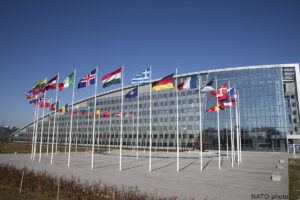
NATO since its establishment April 4, 1949 and in accordance to its strategic concept, has successfully addressed the three core tasks; as a security provider has managed to deter its adversaries and defend its allies; it has managed to cope with crises collectively and in a comprehensive manner and has conducted a persistent outreaching to its partners. Today, 29 countries belong to the Alliance. To the rhetoric question “Is it mission accomplished?”, I would easily argue for yes!
For the EU, when someone search its official site, surprisingly, would only find at the last paragraph titled “The EU in the world” the following statement on security: “Diplomacy and security: The EU plays an important role in diplomacy and works to foster stability, security and prosperity, democracy, fundamental freedoms and the rule of law at international level.” One of the goals and of the EU is to offer freedom, security and justice without internal borders; issues of collective defence though, are not addressed.
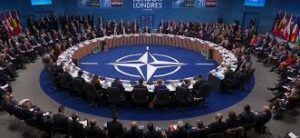
NATO is perceived to be the hard power of 29 allies possessing collectively the greatest military capabilities in the world. The EU is considered as the soft power of 28 member states with substantial civilian like capabilities, including great police, jurisdiction system, competitive market and economic growth, showing a social and cultural profile. Considering that 22 countries are members of both organizations, meaning that both military and civilian capabilities but also the capacity is there, it is only a matter of decision to set the provisions for exploitation of those capabilities at maximum extent, if and when though, both organizations independently and collectively decide so! The framework for the NATO-EU cooperation has been set in 2003 when Hellas had the presidency of the EU; it is consisted of 14 chapters and was communicated in the form of exchange of letters between the HR of the EU (Dr Solana) and NATO SG (Lord Robertson).
Observing very carefully the latest evolutions and the security challenges, considering some important issues,[i] I argue that the requirement for NATO and the EU strategic cooperation of is more essential than ever. The threat in our days should be sought at a 360o sector, including sector zero![ii] This whole of space approach cannot be tackled alone, even by the greatest existing power in the world. It demands cooperation and synergies. This is another reason to reiterate that the importance for the strategic cooperation between NATO and the EU should be given the required attention and demands decisive course of action.
The set up and the provisions of the NATO-EU strategic cooperation, institutionally and as a matter of principle, is well placed; when it comes to implementation though, the real political problems are surfaced. Those well known political problems (when referring to Cyprus in the NATO context and to Turkey in the EU context), poses such practical restrictions and limitations which do not only hamper the strategic cooperation of the two organizations, but literally they preclude any kind of it. One of the chapters of the NATO-EU framework addresses and caters for the exchange of classified information between the two organizations. Since the Republic of Cyprus has no security agreement with NATO, Cyprus cannot acquire (NATO) classified information and cannot take part in any classified discussions. Studying the case closely, it is easy to observe that only “classified” deliberations have been taken place over the years, excluding Cyprus from this “strategic cooperation” of the two international organizations, i.e. NATO and the EU. Some argue that this consist a “member to organization or organization to members of an organization” instead of “organization to organization” approach.
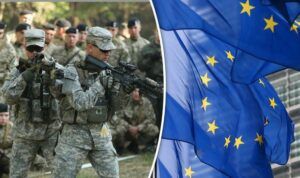
This practice has never been questioned(!). To my humble intelligent, a critical question should be raised. Should we keep allowing a procedure (i.e. the existence of a signature of the security agreement) to dominate a principle (i.e. exclusion of one sovereign country, a UN nation, an EU nation, namely “the Republic of Cyprus” a member state of several international organizations and in this case a EU member state). I argue that we should start questioning this “procedural approach”, and instead of excluding Cyprus, let’s have the two international organizations cooperate strategically together with the inclusion of all member states from both, and ask them (the two IOs) to pay proper attention, for their own benefit, to avoid dissemination of “sensitive and classified” information to those that are not eligible to receive it. Should this proposal be implemented, only then the strategic cooperation between NATO and the EU will be promoted and tangible results will be achieved.
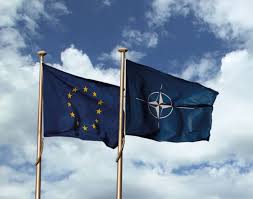
In a more simplistic example using mathematical equations, I argue that EU minus the Republic of Cyprus, should not be accepted to be considered as the EU. It should be considered as a schema, a form of something that I cannot describe what it is, a number of countries who may or can discuss with NATO. Definitely not the EU! To express this question in mathematics, I honestly do not understand how much difference the two subtractions the “EU-Cyprus” from the “UN-167[iii] states” introduce. Subsequently a second question is raised, “why then to refer to the EU and not to the UN” in this case? This is what I offer to those who really desire to see the strategic cooperation between NATO and the EU to flourish!
To emphasize the issue I wish to bring to everybody’s attention that due to the provisions of the framework of the NATO-EU strategic cooperation, formal meetings with the participation of all countries and member states (29 NATO +28 EU) are not conducted; thus formal decisions cannot be made. What is happening so far, is that either the staffs of the two organizations come together to work at the lowest structural / organizational level, or the two leading bodies (NAC and PSC at ambassadorial level) gather together and discuss informally; it is easily and perfectly understandable that in either case, no decision can be made! I fear that we may need a tragedy, a worldwide tragedy to solve the issue!
As mentioned earlier, the two organizations possess different capabilities but quite similar military capacity with the exception of the nice capabilities of the US. By implementing the strategic cooperation in accordance with their true wish, and following a comprehensive approach at any field of their mutual engagement, only then, they will be able to enjoy remarkable achievements. The key word here is cooperation and not coordination; I emphasize the point because it introduces a potential misperception; instances have been observed in the past and the misuse of the proper word (i.e. cooperation) hampered the desired end result. The perception by each organization when the word coordination is used, is that there is a unilateral attempt to take a lead in this combined effort, thus it triggers reflections on the other who simply doesn’t want to be coordinated. In reality, the implementation of the strategic cooperation as decided by both NATO and the EU, will enable the two organizations to achieve saving in resources and make full use of the existing capabilities where and when are really needed. Under any other approach, the development and/or the disposition of means and capabilities are doubled and the overall cost is raised, making it neither affordable nor wise to bare. In NATO, only few allies comply with the 2% of the GDP as their defense investment pledge. This issue of political nature, has been deliberated over the last decade and is explicitly reflected at all NATO summits communiqué, as a reminder to the allies of their security bill obligations. Adding to that their enhanced cooperation will deter Russia to further conduct assertive actions towards the European soil. Europe depends on Russia’s energy sources, thus this alone may introduce security risks and challenges for Europe and eastern Europeans countries in particular. Strengthening the existing NATO – EU ties would minimize the security concerns of the EU, enabling in parallel NATO to focus on the third pillar of its strategic concept i.e. “outreaching to partners”[iv].
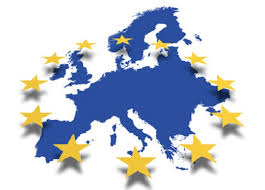
Another challenge to NATO-EU relationship is Turkey. As the latest political evolutions indicate Turkey has introduced a series of problems for both NATO and the EU to cope with. Mr Erdogan autocratic neo-othomanic behaviour and his strategic choices to come closer to Russia, to engage severely in Syria and Libya[v], to continue violating sovereign rights of one UN and EU member state (i.e. Cyprus drilling in its continental self and conducting illegal activities in its exclusive economic zone), to seek the role of the Muslim leader of all Muslims[vi] which obviously is not accepted by other Muslim countries and leaders (i.e. Saudi Arabia, Egypt, UAE and others), creating a gap among cultures and religions, introducing bias to Muslim world towards the Christians. This particular behaviour cannot be tolerated in International Organizations, but since Turkey is a member of NATO, and the EU has not shown the proper solidarity for reasons that will not be analysed in this paper, the ending point is that NATO-EU relationship may be hampered due to Turkey political choices. In my humble opinion, in the midterm, significant evolutions in both organisations will be observed, and at the end, both will lose and their opponents (including Russia) will be benefitted out of these diminishing effects and results.
Before concluding this analysis, I would like to highlight some references to the new challenges as introduced at the NATO’s 70 years anniversary communiqué of the last NATO Summit in London; For the first time ever, there is a reference on “China”, of the “5G” technological evolution and of course “cyber” which has been persistently reiterated. I estimate that soon, the EU will follow by making similar introductions.
Concluding my short analysis on the NATO and the EU relationship as regards their strategic cooperation, considering in parallel the security challenges and the latest political evolutions, I have to admit that … it really “takes two to tango” and it is better if the two partners (namely NATO and the EU) are from the West, they share common values, principles and history!
The NATO-EU framework for their strategic cooperation is well in place. It builds confidence and ensures transparency at all levels of their cooperation. A stronger NATO and a stronger EU could be mutually reinforced. Together they can better deliver security and cater for prosperity in the Euro-Atlantic area and even beyond. It is simply on their hands, on their decision to ensure and maximize this potential!
This strategic cooperation should continue to take place on the basis of the following guiding principles: openness, transparency, inclusiveness and reciprocity, in full respect of the decision-making autonomy and in full compliance of the procedures of both organisations without prejudice to the specific character of the security and defence policy of any part.
Proper attention should be paid on any potential interpretation (or better misinterpretation) of the substantial issues of their strategic partnership, if we really want to see the two organizations working effectively and side by side.
Current political evolutions (introduced explicitly by Russia and Turkey) will cause consequent challenges for the strategic relationship of NATO and the EU, hampering their resilience to the benefit of potential opponents, and leaving free grounds for risks for the Euro-Atlantic security.
George TSONGAS
RAdm (ret) Hellenic Navy
HELISS member since 2019
Former NMIOTC Commandant
[i] NATO countries have not fully committed to their defense obligations (2% of GDP and 20% of this budget for research and development of new capabilities); the defence budgets in most countries follow a declining curve; there is shortage in provision of critical capabilities for real world operations; there is a significant gap (which constantly widening) in the possession of high end capabilities among the allies which at the end hampers the interoperability among the forces; the requirements of the existing operations and missions are not fully covered (issue of political will); the US being the most capable ally has shifted its interest to the east; that Europe should take its security burden on her own hands and not let this burden to the other side of the Atlantic; and most importantly the latest evolutions in Syria, East Mediterranean and Lybia.
[ii] Sector Zero refers to internal national security (terrorism, cyber, migration flows) should be considered very carefully because it touches sovereignty issues.
[iii] UN (195 member states) minus 168 (the non EU member states) minus 1 (“the Republic of Cyprus”) = (equals) the EU (27member states) minus “the Republic of Cyprus”.
[iv] Russia is and should remain a strategic partner for NATO. Even just after Russia’s invasion to Crimea, the NATO-Russia Council continued its political dialogue at highest level when every military cooperation had stopped. The reality indicates that the relationship progresses, either due to US and Russia leaders’ unique relationship and leadership, either through NATO’s collective approach towards Russia (and vice versa) as strategic partner.
[v] In both cases Turkey violated UN resolutions and special agreements (i.e. Berlin conference for Libya, January 2020)
[vi] An example is his personal choice to convert an UNESCO and world heritage site “the Haghia Sophia” (of particular importance for the Greeks, the Orthodox all around the globe, all Christians in lower level though), to a Mosque!
